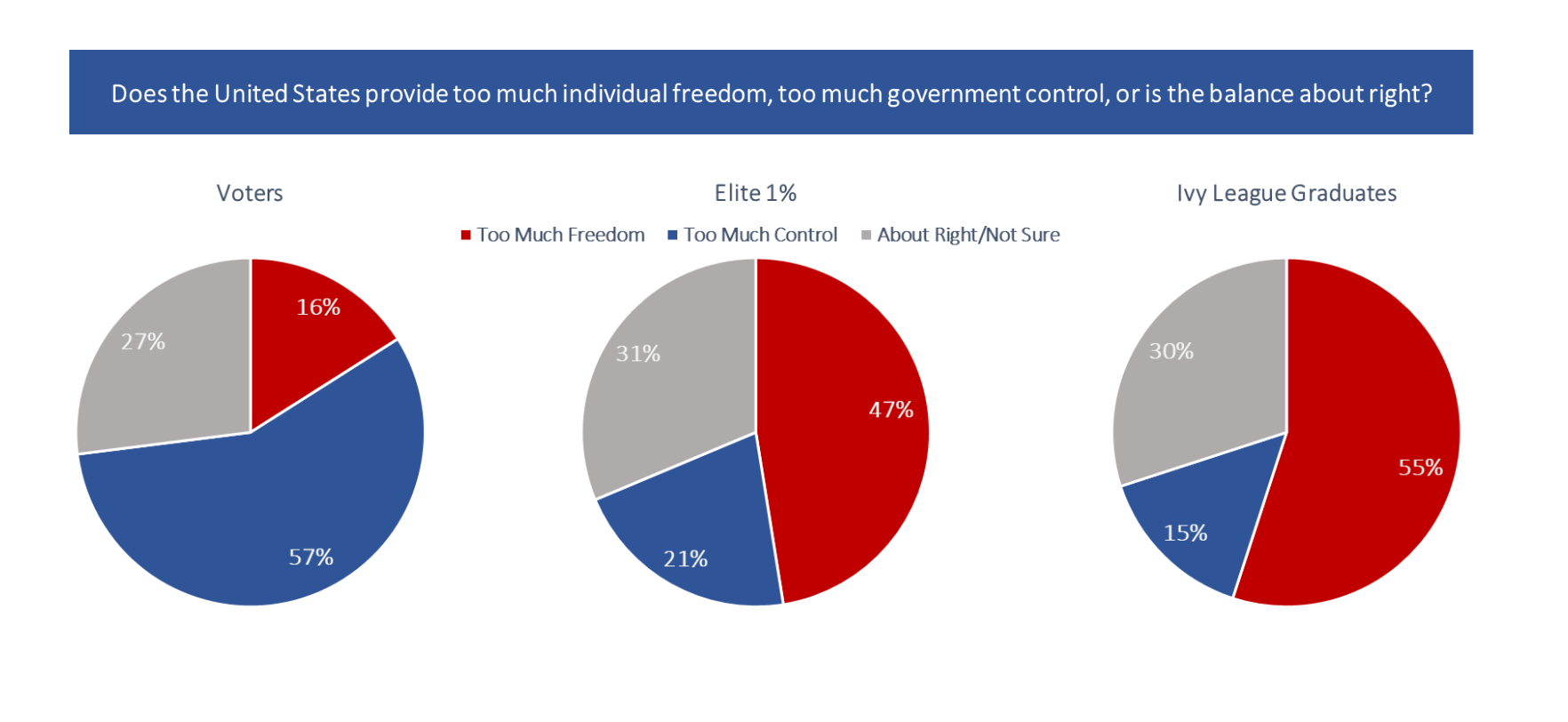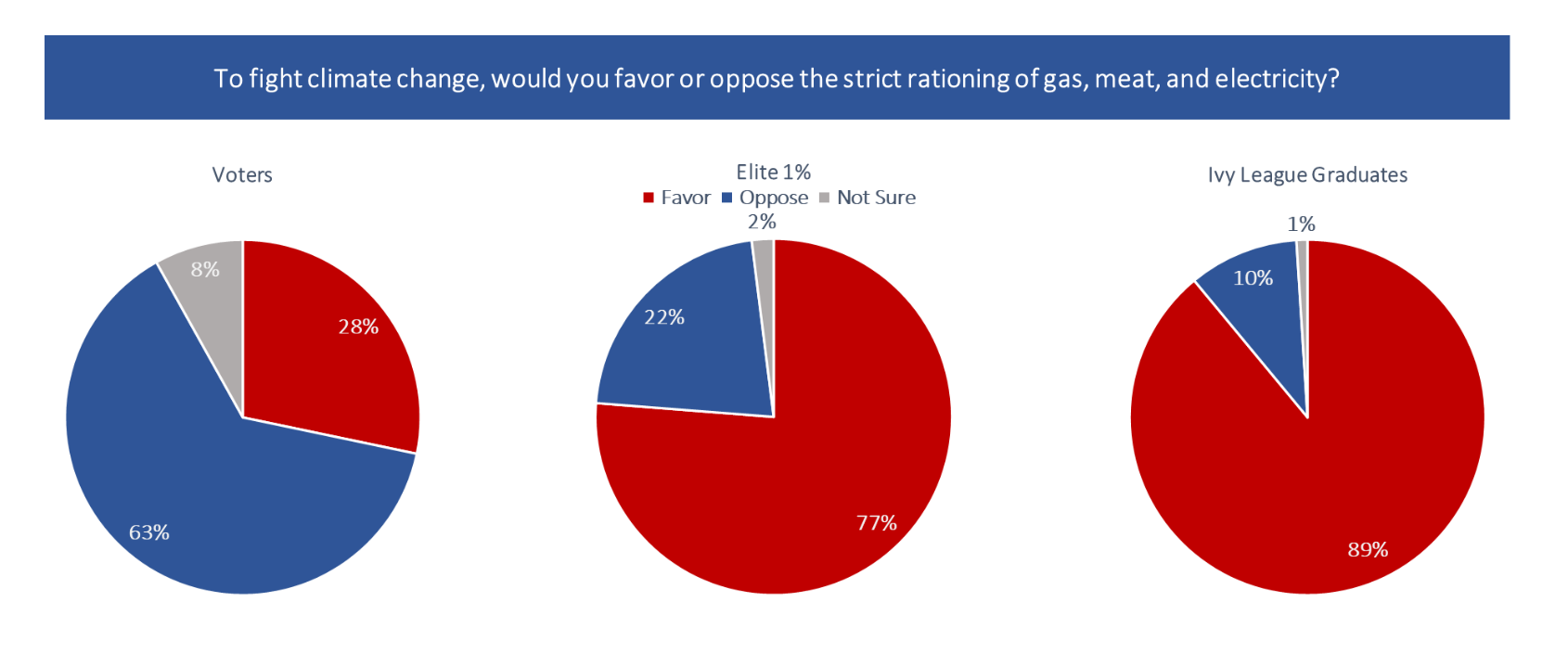

In a recent exposé of the widening chasm between the global elite and the general populace, a poll conducted by the Committee to Unleash Prosperity in collaboration with Rasmussen Reports has provided a stark depiction of the ideological rift that is shaping political landscapes across the West.
In a recent exposé of the widening chasm between the global elite and the general populace, a poll conducted by the Committee to Unleash Prosperity in collaboration with Rasmussen Reports has provided a stark depiction of the ideological rift that is shaping political landscapes across the West. The survey, focusing exclusively on America's 1%—characterized as individuals with postgraduate degrees and incomes exceeding $150,000—unearthed some unsettling sentiments harbored by the elite concerning freedom, governance, and environmental policy.
The survey's findings, as reported by a well-respected newspaper, reveal an overwhelming consensus among the elite that the public possesses too much freedom, with 70% of elites who expressed an opinion supporting this view. In stark contrast, the non-elite overwhelming majority—80%—believes that the people have too little freedom, signaling a deep disconnect between the two groups.

In matters of education, the elite showed a strong preference for teachers to dictate educational content over parents, with a 70% majority in favor. Trust in government to act benevolently also scored high among elites, with nearly 80% endorsing stringent state intervention on ecological matters such as the strict rationing of gas, meat, and electricity to combat climate change. Notably, this figure rose to 90% among Ivy League graduates, suggesting a correlation between educational pedigree and acceptance of authoritative environmental measures.

The elite's appetite for regulation extends to outright bans on gas stoves and gas-powered vehicles—particularly SUVs and pickups—with 70% and 81% support, respectively. Additionally, majorities within this demographic are in favor of prohibiting air conditioning and non-essential air travel, albeit with an implicit exemption for private jets and luxury compounds, which typically cater to the wealthy.
The poll also provided insights into the elite's perception of the current administration, with nearly 90% of the 1% expressing approval of President Joe Biden and reporting financial well-being. This is in stark contrast to the sentiments of average Americans, who are seemingly disconnected from the so-called "Biden magic."
The authors of the poll have distilled the essence of these findings into a poignant commentary, suggesting that those who consider themselves the stewards of American society are ensconced within self-constructed ideological bubbles, profoundly out of touch with the lived realities of the majority.
As the world eyes the impending election season—whereby an unprecedented 75% of countries with free or partially free elections will go to the polls—the question arises: will the electorate favor the globalist perspective, or will the populist movement continue to gain ground? The data suggests that the latter may be the case, with the general public increasingly at odds with the policies and perceptions of the globalist 1%.
For readers keen on delving deeper into this growing ideological divide, the full video analysis concludes with an invitation to stay tuned for further developments as electoral events unfold across more than 50 countries.